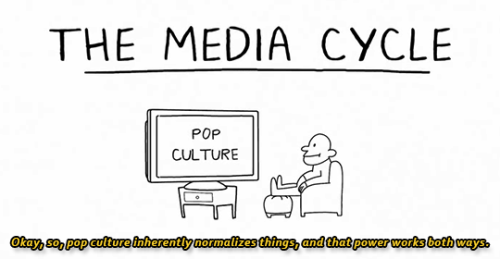Words by Jenna Dreisenstock
For years, the conversation regarding depth, thoughtfulness and philosophies surrounding various genres have raged against one another: with (mostly) fans of ‘alternative’ music in the never-ending debate over whether pop music, or perhaps more aptly ‘mainstream’ radio music – has any meaningful ideologies whatsoever, and whether the majority of general consumers are simply inhaling vapid, arrogant tracks written solely to please the public and boost artists egos. And, whether this matters or not.
In a recent interview with Damon Albarn; the co-founder behind brit-pop band Blur and primary songwriter for ‘virtual’ group Gorillaz, the musician responded to a statement regarding the rise of political subjects within the music world and the role it plays. Agreeing with music growing more political, Albarn stated:
“It needs to – it really, really needs to,” he added. “The selfie music is not sustainable. Have I made a selfie tune? I probably tried to but my innate obtuse nature prevented me from doing it properly.”
The evolution of music that appeals to a wider audience has definitely grown more political, yet can be tame in the face of possibly alienating fans. Despite this, the idea of ‘selfie music’ that Albarn mentions is quite self-explanatory – with many artists placing focus on very self-involved subjects, that appear quite superficial; as opposed to tackling the various, urgent political issues we are currently facing.
As entertainers, often provided with massive platforms in order to share their voices regarding these subjects; the argument as to whether they are required to tackle these issues as a form of social responsibility is a complicated, nuanced issue. While there is no doubt that music that generally appeals to a wider audience can be exceptionally superficial, the question is whether it is fair to expect all musicians to tackle serious political issues in their work; or if simply creating catchy-tunes without an underlying philosophy is a necessary balance within a tumultuous political climate.
The role media and popular-culture play in normalizing vs. challenging the ways in which society functions is clear; it’s a vital part of how our we view our world, approach social situations, develop ideologies, change our minds, gain insight and so on. This ultimately leads to the ways we work on changing the world around us, and – we really need to do so. There are unfortunately many individuals who turn a blind eye, or play a part in normalizing dangerous and extreme behaviours; and influencers, such as musicians, definitely play a part in validating the views of the public.

While it’s crucial that these individuals understand they have social responsibilities, the genre wars of vapid pop vs. political statements in music ultimately boils down to whether this expression is utterly meaningless and contributing to the normalization of selfish behaviour by the public, or if the response regarding the shallowness of mainstream music is too harsh.
The self-centered nature of certain styles of music is evident, yet are we able to define these solely as vapid money-making schemes, or look at it from a different perspective – is this self-expression on part of these artists and is it unfair for us to judge? Or is the culture of curated, unrealistic aesthetics and self-obsessed entertainment spilling through too heavily within the music industry, ultimately contributing negatively to the public’s interaction with the world; trivialising serious political issues while normalizing inaction?
This issue can’t really be defined in a black and white context, yet with this being said – our own awareness of what we consume, and how we respond to it, is ultimately what is most important.




